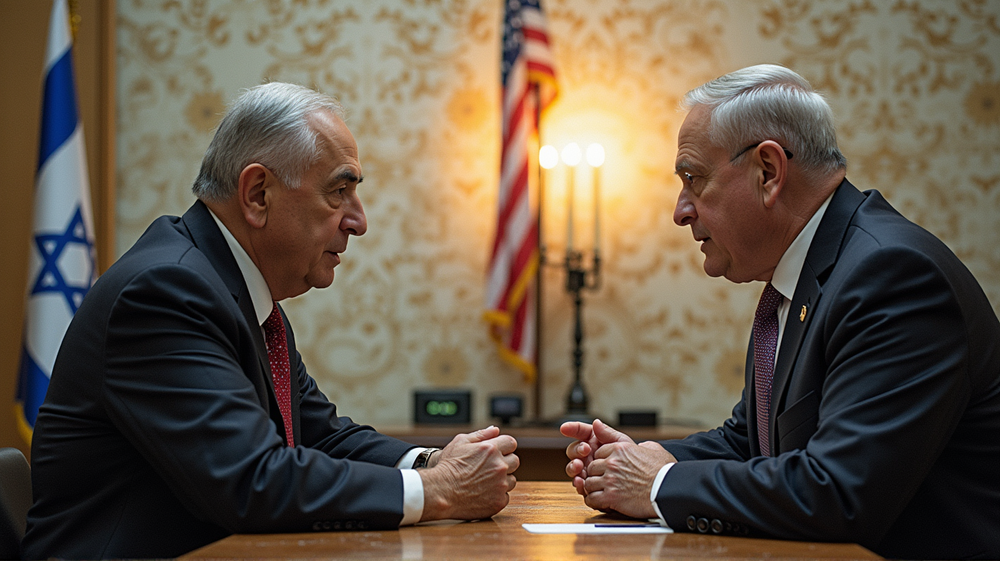In a dramatic critique, top U.S. officials have voiced strong objections to the Israeli parliament’s moves towards annexing the occupied West Bank, claiming it jeopardizes ongoing efforts to maintain peace in Gaza. According to NBC News, Secretary of State Marco Rubio and Vice President JD Vance have both expressed frustration over this decision, labeling it as a potential “political stunt” that complicates U.S. diplomatic endeavors aimed at a lasting peace deal.
Severed Ties Threatened
Rubio’s stern warnings emphasize the grave consequences the annexation could bring—not only to President Donald Trump’s meticulous peace plan but also to diplomatic ties with Arab nations. As he prepared for a diplomatic visit to Israel, Rubio affirmed, “Israel would lose all of its support from the United States if annexation happens.” His statement echoes Trump’s recent remarks underscoring the importance of maintaining U.S.-Israel relations for regional stability.
U.S. Efforts for Peace
The tension overshadowed the broader context of U.S. efforts in the region as officials like Vance, Middle East envoy Steve Witkoff, and Jared Kushner converge on Israel. The underlying message being that these visits are not about “babysitting the Gaza ceasefire,” rather they emphasize the U.S.’s role as a pivotal but mutually respectful partner in Israel’s strategic planning.
Mixed Responses and Future Outlook
Despite the strain, optimism remains a central theme for U.S. envoys. Highlighting opportunities amidst the challenges, Rubio assures that with continuous diplomatic strides, a sustainable peace framework is achievable. The sentiment is echoed by Netanyahu, whose administration distanced itself from the annexation motion as a “deliberate political provocation.”
Historical Context and Broader Implications
The annexation saga feeds into a larger historical narrative. With the 1967 Mideast War as a backdrop, discontent stirs over Israeli settlements in the West Bank. This move is condemned by a large section of the international community, who see it as undermining the Palestinian cause and peace prospects. Rubio puts it succinctly: “Every day is gonna bring opportunities and it’s also going to bring some challenges.”
The current ceasefire, deemed a historic milestone, remains the best hope against decades of conflict. Yet, as Rubio concludes, “There’s more work to be done… this unrealized potential depends on peace prevailing over provocation.”
By weaving diplomacy with firm resolve, U.S. and Israeli leaders tread the fragile line between historical conflict and the promising vision of enduring peace.












